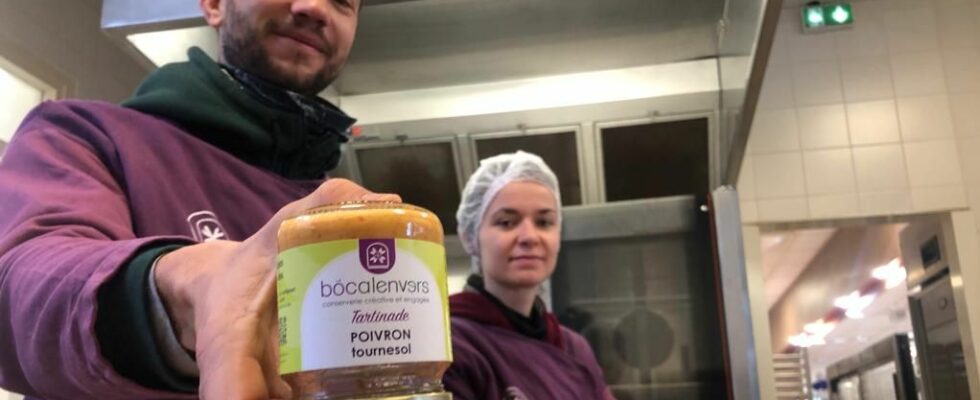In the XXL oven, the peppers are cooking, while Camille sorts and peels the mandarins collected that morning. Not just any fruits and vegetables, those rejected by a supermarket in Toulouse because in the middle of the batch there was one that was too damaged or that they looked too withered to find a consumer ready to put it in his basket .
“It’s a shame because they go to the trash and then to the incinerator”, regrets Soël who has decided to give them a second life in the cannery he has just set up with Camille.
These two engineers, who used to cook together when they lived together, created a few months ago Boc’Alenvers, an association that fights against waste by making jams, chutneys, vegetables in oil and other spreads made from zucchini or surviving apples. A way to carry ecological values while supporting an integration project for people in social difficulty.
Also a social integration project
“We started at home for eight or nine months. Since October, we come to cook twice a week at the “petit bouillon”, the former canteen of the Orange buildings, now converted into a Tiers Lieu. After training in the cannery, and an experimental phase where we developed around sixty recipes, today we sell our jars in two “bulk” stores in Toulouse: Tarés du bulk and Ceci & Cela”, explains Soël, a fan of gleaning on the markets but who, thanks to unsold items from his partner supermarket, can recover up to 50 kg of raw materials per week.
With Camille, they hope to soon be able to sell their “Boc’Alenvers” online at a price of 4.50 euros and on the principle of Click & Collect. And become an insertion site. “Our goal is for it to have meaning in the territory where we are, for it to be a social project but for it to be good too”, continues the man who, after having been an engineer in aeronautics, preferred to refocus on the values that he defends.
“Indian-style pineapple” and “Mafé carrot”
With the idea of ever further minimizing the impact of their activity, by moving towards depositing their jars, composting peelings or even using glueless labels on their “Boc’Alenvers”. A name that challenges and refers to the material of the jars, but also to the reverse of their project, social and committed against global warming.
Last year, the two acolytes saved a ton of fruit and vegetables and offered jars of “Mafé Carrot”, “Thyme Clementine”, “Indian Pineapple” or one of their bestsellers, the succulent “Sunflower pepper”. And this year, they plan to recover ten times more, in particular by multiplying the collection sites.

